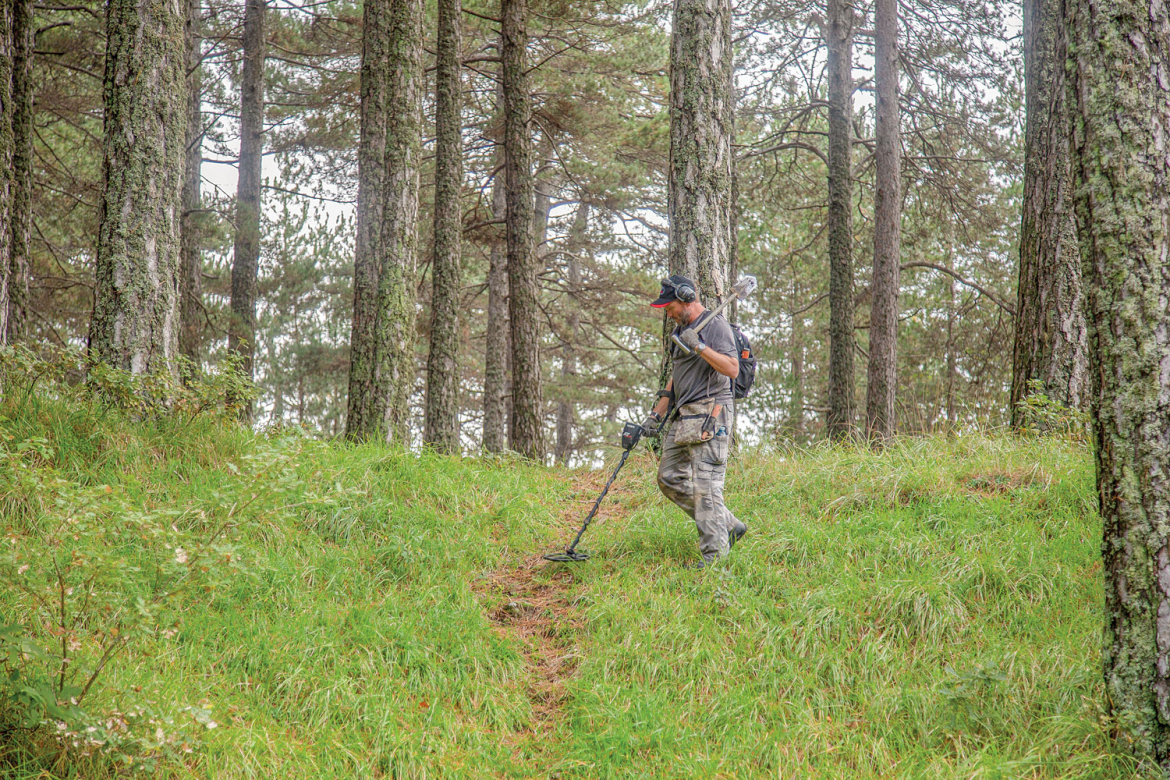Is Metal Detecting Allowed in National Forests? Restrictions, Regulations & Usage Guidelines
Yes, metal detecting is generally allowed in national forests, but it is subject to specific rules and restrictions. Recreational metal detecting is permitted in designated areas, such as recreation sites or picnic areas, while detecting in archaeological sites, historical sites, or areas with natural or cultural resources is strictly prohibited. Always check with the local forest service office for area-specific guidelines and permit requirements.
Metal Detecting in National Forests: The Rules and Restrictions
Metal detecting in national forests and state parks offers a unique recreational experience for metal detectorists, treasure hunters, and hobbyists. However, engaging in this activity comes with specific rules and restrictions designed to preserve the integrity of archaeological resources, historical artifacts, and natural areas for future generations.
Restrictions in Archaeological Sites and Historic Sites
Federal laws, including the Archaeological Resources Protection Act (ARPA) and the National Historic Preservation Act (NHPA), strictly prohibit metal detecting in designated archaeological sites, historical sites, and areas with known historical or archaeological value. These rules are in place to protect the cultural heritage of national forests, state forests, and public lands.
Disturbing or removing historical artifacts or archaeological resources from these sites is illegal and can lead to severe penalties, including fines and imprisonment. The use of a metal detector is also restricted in areas near historic sites and archaeological value zones, as even the act of searching could disturb sensitive natural resources or uncover artifacts that are federally protected.
In state parks and national forest lands, always look for signage indicating restrictions on metal detecting or ask park staff for guidance before beginning any activity.
Protocol When Finding Archaeological Resources and Historical Resources
If you come across archaeological resources or historical artifacts while metal detecting, it is crucial to follow the appropriate protocol:
- Stop Immediately: If you believe an item has archaeological value, cease digging or further searching in the area.
- Report to Authorities: Notify the local forest service, state park, or federal land management office. If you are on national park property, report your find to park staff.
- Do Not Remove Items: Removing items of historical value is prohibited by law, even if you found them unintentionally. These objects belong to the public trust and are meant to be preserved for future generations.
- Seek Guidance: For more details on the proper steps, inquire about special permits or prior approval from the responsible authority if you intend to continue metal detecting in areas where such finds are possible.
These protocols ensure that historical resources and archaeological sites are preserved in their original condition for further study and protection.
Public Land vs. Private Property: Key Differences
When metal detecting, it is vital to understand the differences between activities on public land and private property:
Public Land: Metal detecting is generally permitted in designated recreation areas, natural areas, picnic areas, and wildlife habitats on national forest and state forest lands. Check with local forest service offices for site-specific regulations, as some locations may require a special permit for metal detecting or have restrictions near picnic tables, coastal parks, or recreation sites.
Private Property: Metal detecting on private property requires explicit permission from the landowner. Detecting without approval can lead to trespassing charges. Unlike public property, where laws protect archaeological resources and natural resources, private property laws vary, and finds such as metal objects or treasure troves typically belong to the property owner.
Understanding these distinctions ensures that metal detectorists can enjoy their hobby responsibly while adhering to legal requirements and respecting the preservation of natural areas and historical sites. Always seek prior approval and obtain any necessary permits to avoid potential fines or legal issues.
Types of Metal Detector Usage Recognized in National Parks
Metal detecting in national parks is highly regulated to balance recreational enjoyment with the protection of archaeological resources, historical artifacts, and natural resources. Here are the four recognized types of metal detector usage:
Treasure Trove Hunting
Definition: Searching for valuable hidden or buried treasures, such as coins, jewelry, or other high-value items.
Regulations:
- Treasure trove hunting is strictly controlled on federal land, national forests, and state parks to prevent the unauthorized removal of archaeological resources or historical artifacts.
- Special permits may be required in some recreation sites or public land areas.
- Report finds to park staff or the forest service to determine their archaeological value.
Protections:
- Items of significant historical or cultural importance are protected under federal law and must remain in their original condition for future generations.
Prospecting
Definition: The search for mineral deposits, such as gold or other valuable metals, using a metal detector.
Regulations:
- Prospecting is generally limited to designated areas on national forest land or public land where mineral deposits can legally be collected.
- A special permit is often required, especially in regions with significant natural resources or wildlife habitats.
- Prospecting is prohibited in archaeological sites, state parks, and areas with historic sites.
Responsibilities:
- Always check local forest service guidelines for approved prospecting zones and avoid disturbing natural areas or wildlife habitats.
- A Notice of Intent (NOI) is required if your prospecting could cause a disturbance of resources or land.
Searching for Historical Artifacts
Definition: The search for items of historical significance, such as tools, coins, or weapons, often tied to historical resources or archaeological sites.
Regulations:
- Strictly prohibited without prior approval or a special permit due to protections under laws like the Archaeological Resources Protection Act (ARPA).
- Any item with archaeological value must be reported to park staff or relevant authorities and cannot be removed or disturbed.
Permit Requirements:
- Metal detecting in areas with potential historical artifacts requires obtaining a special permit or explicit permission from federal agencies managing the land.
- Permits ensure that professional archaeologists can oversee the discovery and preservation of significant finds.
Recreational Metal Detecting
Definition: Casual metal detecting for fun, typically in picnic areas, recreation sites, or coastal parks.
Regulations:
- Permitted only in designated areas of public land, such as recreation areas and picnic tables, and prohibited in archaeological sites or historical sites.
- Recreational users must respect posted rules, avoid disturbing wildlife habitats, and leave the area in its original condition.
Responsibilities:
- Recreational users must follow park staff guidelines and avoid damaging natural resources.
- All non-valuable finds should be reported or turned over if they are suspected to have historical or cultural significance.
By understanding the purpose and regulations of each type of metal detecting activity, hobbyists can enjoy their time responsibly while helping to preserve the archaeological resources, natural areas, and historical sites that make national parks and forests so valuable.
Responsible Metal Detecting
Metal detecting is a rewarding hobby that provides opportunities to explore nature, uncover fascinating finds, and appreciate history. However, it comes with the responsibility of protecting the environment and preserving the integrity of the places we explore for future generations. Here’s how to practice responsible metal detecting:
Leave Places in Their Original Condition
Always ensure that your activities do not disturb the natural or historical features of the area. This includes:
- Filling in any holes you dig while metal detecting.
- Avoiding damage to wildlife habitats, natural areas, or vegetation.
- Ensuring that no trash or unnecessary disturbance is left behind.
- Preserving these areas allows others to enjoy their beauty and historical significance.
Quick Tips for Responsible Metal Detecting
- Know the Rules: Research the regulations for the area you plan to explore, including specific rules for national forests, state parks, and public property.
- Seek Permission: Always obtain the necessary permits or approval for detecting on private property, Indian lands, or restricted public land.
- Respect Wildlife and Nature: Avoid disrupting wildlife habitats, and keep an eye out for signs indicating restricted or protected areas.
By following these guidelines, you can enjoy metal detecting while protecting historical resources, natural areas, and the environment for others to appreciate and enjoy in the years to come.
Why Garrett is the Premium Metal Detector Choice
At Garrett, we take pride in being a leader in the metal-detecting industry, with an unwavering commitment to customer satisfaction and the production of high-quality, reliable equipment. With decades of expertise, we consistently deliver innovative products designed to meet the diverse needs of hobbyists, treasure hunters, and professionals alike. Each detector we create is built with precision and durability, ensuring exceptional performance in various environments. Some of our most popular metal detectors for sport, or treasure hunting use, include:
Reputation & Reliability
Our reputation for reliability and technical excellence is unmatched. We engineer our products with advanced features that provide accurate detection, ease of use, and adaptability to different terrains. This dedication to excellence has earned us the trust of metal detectorists around the world.
At Garrett, we value responsible metal detecting and strive to support this mission by educating users about preserving natural and historical resources. When you choose Garrett, you’re not just investing in cutting-edge technology—you’re becoming part of a community that respects and protects the environments we explore for future generations. Contact us today to find the perfect metal detector for you.
Resources:








